When widespread coronavirus restrictions first began to take effect last month, I was in an airport.
 I suddenly became acutely aware of people around me serving food, cleaning tables, maintaining equipment, and many more. Clearly, I thought, I have not appreciated such people enough or sufficiently expressed my thanks. They (along with other more obvious examples of first responders and medical staff) were putting their health on the line to serve me and others, to keep society functioning, even if it was at a reduced level.
I suddenly became acutely aware of people around me serving food, cleaning tables, maintaining equipment, and many more. Clearly, I thought, I have not appreciated such people enough or sufficiently expressed my thanks. They (along with other more obvious examples of first responders and medical staff) were putting their health on the line to serve me and others, to keep society functioning, even if it was at a reduced level.
What they were doing was courageous, putting their own well being at risk for the sake of others. I also realized, however, that some of them had no choice. They could not afford to stay at home without pay for weeks or months. They had no savings, no family safety net to fall on. They could not do their jobs virtually via laptop and Zoom.
One grocery store worker feels the label of hero is misplaced for her and others. And she raises good questions. At least hazard pay should be a consideration for such workers.
Heroes, nonetheless, may not always look like what we expect. They do not always arrive with a uniform, a cape, a superpower, magical abilities, or exceptional cleverness.
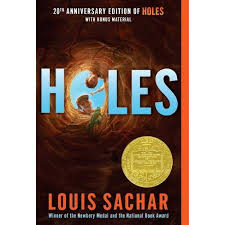 In Louis Sachar’s novel, Holes, Stanley Yelnats is a wonderful, unexpected hero. He is a bit overweight, awkward, doesn’t seem particularly smart or charming, has little by way of leadership skills, and in fact often gets picked on by other kids. He is almost the definition of ordinary, if not forgettable. Yet the whole tale of injustice, bad luck, and obsession hangs on his steady, unflappable, and forgiving character.
In Louis Sachar’s novel, Holes, Stanley Yelnats is a wonderful, unexpected hero. He is a bit overweight, awkward, doesn’t seem particularly smart or charming, has little by way of leadership skills, and in fact often gets picked on by other kids. He is almost the definition of ordinary, if not forgettable. Yet the whole tale of injustice, bad luck, and obsession hangs on his steady, unflappable, and forgiving character.
How? Stanley does not take life too personally—the good or the bad. He also makes room to help those in need. Zero, for example, wanted to learn to read. Stanley helped him despite ridicule and potential punishment. Finally, Stanley has grit. He doesn’t give up. He undramatically keeps plodding ahead, moving forward, when others would have stopped.
Years ago I saw the movie based on this book. As I read it recently for the first time, I remembered some of the story. But I found it to be a splendid reminder that even ordinary people can be heroes by virtue of their ordinariness.
image credit: Pixabay Scottslm


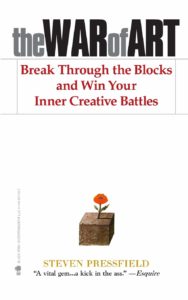
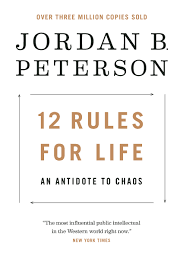
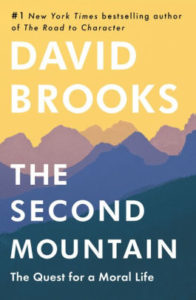
 In his opening to The Second Mountain, David Brooks says he is correcting his previous book, The Road to Character. I think, however, the two are simply companion volumes. While the earlier book focuses on the valid and important work of character development that each of us is responsible for, Brooks’s newest book highlights the importance of community for who we are.
In his opening to The Second Mountain, David Brooks says he is correcting his previous book, The Road to Character. I think, however, the two are simply companion volumes. While the earlier book focuses on the valid and important work of character development that each of us is responsible for, Brooks’s newest book highlights the importance of community for who we are.

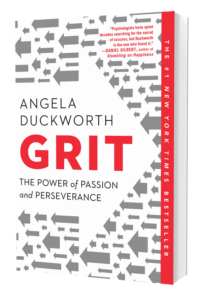
 Duckworth gives a nod to the fact (as research shows) that our environment (society, family, culture) can profoundly affect our grit. The culture of Finland, as one example, can train a whole country to be tough in adversity. So grit is not merely a matter of pulling oneself up.
Duckworth gives a nod to the fact (as research shows) that our environment (society, family, culture) can profoundly affect our grit. The culture of Finland, as one example, can train a whole country to be tough in adversity. So grit is not merely a matter of pulling oneself up.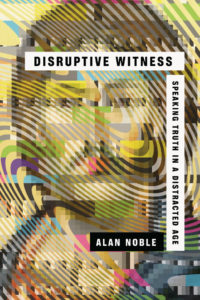
 The second part of the book looks at practices we can engage in to break or disrupt these forces—personally, as a church, and as we interact with culture. These are not suggestions for evangelism as we might typically think of them. They are more like spiritual disciplines to reorient our own lives before (or as) we engage with those outside God’s family. I could wish for more here, but Noble gives us a necessary beginning.
The second part of the book looks at practices we can engage in to break or disrupt these forces—personally, as a church, and as we interact with culture. These are not suggestions for evangelism as we might typically think of them. They are more like spiritual disciplines to reorient our own lives before (or as) we engage with those outside God’s family. I could wish for more here, but Noble gives us a necessary beginning.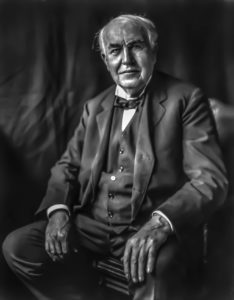 And how do original thinkers work? From Beethoven to Edison to Picasso they outproduced their peers. Each is famous for several works of genius. What is little known is the thousands of works they generated that are forgotten. Producing so much in quantity increased their odds that a few would be landmark creations.
And how do original thinkers work? From Beethoven to Edison to Picasso they outproduced their peers. Each is famous for several works of genius. What is little known is the thousands of works they generated that are forgotten. Producing so much in quantity increased their odds that a few would be landmark creations. The author’s definition of an original as someone who is different or inventive is not much more than a tautology. He would have been better off to concretely define creativity as combining two things or ideas which hadn’t been joined before or by combining them in a new way.
The author’s definition of an original as someone who is different or inventive is not much more than a tautology. He would have been better off to concretely define creativity as combining two things or ideas which hadn’t been joined before or by combining them in a new way.